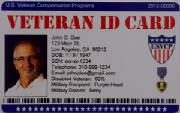|
|
|
|
|
|
How Veterans Can Speed Up Their Disability Claims
It is a well documented fact that VA disability claims processing is a convoluted, complex, intricate web of gargantuan proportions. Coupled with lack of personnel, inadequate training, and systemic apathy, getting a disability medical claim processed in an efficient manner is almost impossible. Granted, there have been isolated cases of veterans receiving compensation benefits in as little as 30 days, but, those instances are extremely rare. First time disability claims have a current processing time that ranges anywhere from 330 days – 1427 days. While the VA “system” may be responsible for much of the lag time, there are those occasions when a veterans’ input results in delayed processing. Below are the Top 6 reasons how a veteran may hold up his/her disability claim, and remedies to keep it from happening.
1. Medical Records. One of the main delays in getting a VA disability claim started is the lack of medical documentation supporting the disability claim or no service medical records at all. It is imperative that a veteran get all medical records related to his/her disability claim before sending in a disability claim for processing. If a veteran is being represented by a certified Veterans Service Officer (VSO), it is the job of that VSO to get medical records from military archives and civilian institutions.
Therein lies the problem. Getting military medical records from the National Personnel Records Center (NPRC) can oftentimes be a daunting task. Far too often the record retrieval process will result in a veteran getting partial records or no records at all. NPRC has been known to submit letters to veterans informing them their records are located at a VA near the veteran. The veteran checks with their local VA only to be told their records are located at NPRC. Ultimately, the veteran gets tired of the runaround and gives up. Don’t!
Some veterans have been known to hire a Medical Records Researcher, a person or agency who conducts the search for records for a fee. If a veteran needs help they can contact NPRC Customer Service for more information about a Medical Records Researcher at 1-866-272-6272.
2. Missed QTC Appointments. Statistically, 11% of veterans pursuing VA disability compensation miss their first QTC appointment. That is an astronomical figure considering the alternative. Some veterans have waited more than a year to get a rescheduled appointment with QTC. Do everything in your power to make your appointment. If you have to reschedule, do it before your appointment date and time. Doing so will allow for quicker rescheduling by QTC personnel.
3. Having A Hard to Reach VSO. Unfortunately, not all VSOs operate in the same professional manner. Some VSOs are very attentive, easy to contact, while others, not so much. Many veterans can find a VSO by talking to fellow veterans and getting referrals to a good, user-friendly VSO. Some veterans change VSOs in order to work with one who will be accessible, and there to meet the veteran’s needs.
4. Not Responding to VA Requests. The VA is required to get all medical paperwork related to a veteran’s disability claim, period. However, it would not be prudent for a veteran to leave the success of his/her disability approval entirely up to the VA. If the VA asks for supporting documentation from a veteran the veteran must make sure and get the documentation to the VA as soon as possible. Sending documents USPS Certified Mail is a good way to track mail to its destination. Also, a veteran will have a copy of the records and can track online to see when the VA signed for your documents.
5. Not Internet Savvy. The VA has instituted ebenefits, which is supposed to make the process of filing claims paperwork easier and more efficient. It seems to work well for Iraq and Afghanistan veterans, but it is a struggle for Internet-challenged Persian Gulf, Vietnam, Korean War, and World War II era veterans. If Internet or computer challenged, get help. Some veterans have been known to have their grandchildren help them with online exchanges.
6. Forms Not Filled Out Correctly. Veterans must make sure their disability claim documentation is filled out completely as required and filled in accurately. For instance, if a veteran is claiming a ganglion cyst on his/her thumb, it is important to note which thumb; left or right. Incomplete forms will stop a disability claims case in its tracks.
|
|
|
|
|
|
|

